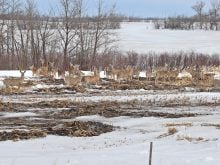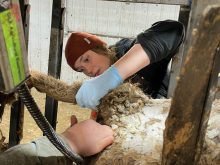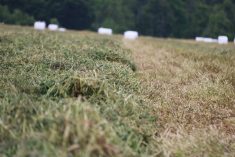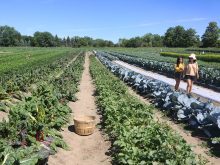The concept of certified sustainable beef production has been bandied about for several years, and with the release of a framework for producers and processors to follow, customers should soon see that seal of approval.
The Canadian Roundtable on Sustainable Beef released its guidelines Dec. 7 for producing a certified product.
“We recognize there are markets out there who want some form of certification that goes with their product,” said Fawn Jackson, executive director of the Canadian Roundtable for Sustainable Beef.
Sustainable beef is defined as a socially responsible, environmentally sound and economically viable product.
Read Also
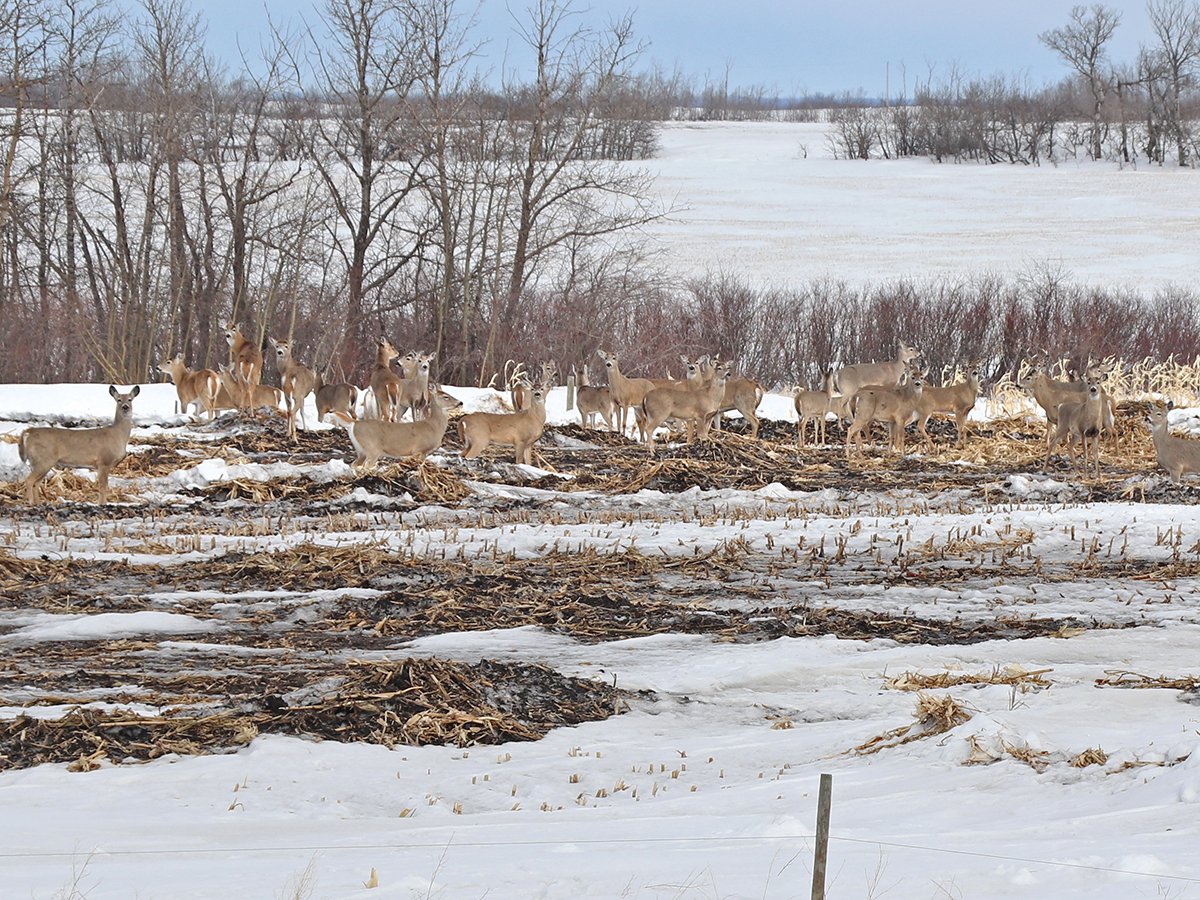
Foot-and-mouth disease planning must account for wildlife
Our country’s classification as FMD-free by the World Organization for Animal Health has significant and important implications for accessing foreign markets.
Economics is a key principle for beef producers, said rancher Cherie Copithorne-Barnes, who chairs the Canadian roundtable.
“Every part of this framework has been built with the understanding that if it is not economically viable, something has to change,” she said.
Producers, retailers, restaurants, food services, processors and non-governmental organizations are members of the roundtable. McDonald’s Canada ran a pilot program to see if it was possible to trace beef from the farm to the final product. The project was successful, and the roundtable used its results to build a practical program.
Producers who opt to join have to meet a set of criteria of best management practices. They will be audited and certified if they meet the expected outcomes.
“You will be pleasantly surprised how easy it will be to arrive at that,” said Copithorne-Barnes.
Everything starts with a live animal born at a certified cow-calf operation that can go to a certified backgrounding/feedlot operation and then to a certified primary processor, further processor and retail or food service. The requirements are outcome based rather than telling producers precisely how to do their jobs.
“This is actually quite a new area for standards programs,” Jackson said at the Alberta Beef Producers annual meeting in Calgary Dec. 4-6.
“We are a big country with a lot of different beef producers who do things differently, and we would like to recognize the innovation and leadership these producers are showing,” she said.
The program covers management of natural resources such as water, soil, carbon sequestration, air quality, grasslands and wildlife habitat.
Producers need to be involved in their communities and have respect for their workers.
They must also meet certain standards for animal health, responsible product use, welfare, pain treatment and euthanasia.
Food safety, crop input products, recycling and energy use will also be audited. Producers who participated in the Verified Beef Program Plus are already well on their way to being accepted.
“There are a lot of efficiencies in using the programs that are already out there to get this done efficiently,” said Copithorne-Barnes.
In addition, Cargill Meats has worked with Cara Foods, Loblaws and McDonalds to launch a beef sustainability pilot in which participating producers could be paid premiums. They must be verified beef producers and sign on to the tracking system BIXs so that cattle can be followed from farm to fork.
“The purpose of the pilot is to learn how to deliver certified sustainable beef from the ranch to the grocery store,” said Virgil Lowe, who manages the VBP Plus project.
The project started in October and will run for a year, hoping to build demand from restaurants and grocers to sell sustainably produced beef.
Producers have often said they want to be paid more as an incentive to join these specification programs, said Bob Lowe, outgoing ABP chair.
“If this doesn’t work, it is probably because we don’t have the supply of cattle. This means they are going to pay. If we don’t supply the cattle, then shame on us,” he said.
“If we can’t come forward with what we have been asking for, then shame on us.”
For more information, visit www.crsb.ca.



